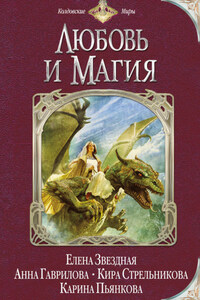“No,” said Alix, “that’s not a good plan at all. It’s perfectly stupid. If you’ve no better ideas than that, Rafe, we needn’t talk about it any more.”
Rafe looked and felt very snubbed indeed.
He was ten, she was nine. But she generally took the lead; not always, as I daresay you will see when you hear more about them, but generally. They were a nice little pair, and they were constantly together, at lessons, at play, at everything. This was a convenient arrangement, for they were a good deal younger than the other brothers and sisters of the family, and what Rafe would have been without Alix, or Alix without Rafe, it would be difficult to imagine. But there is not much use in thinking over about might-have-beens, or would-have-beens, unless to make us more thankful for what is. So it is enough to say that as things really were, they were very happy children.
Still they had their troubles, and it was one of these they were discussing this lovely spring morning, when they were sitting under their favourite tree – a magnificent ilex in the garden, at one corner of the great lawn which was one of the beauties of their home.
It was a lovely day, clear and bright and joyous, full of its own delights, and yet almost fuller of the summer ones to come! This is, I suppose, the real secret of the charm of spring-time – the promise and hope it tells of. Everything seemed bursting with good news, the birds most of all perhaps, though the smiling faces of the early flowers, and the tender whispers of the gentle wind through the branches, were not behindhand. But the children’s faces were clouded.
This was their trouble. They could not get any one to tell them any more stories! They had read all their books through, over and over again, and besides, books aren’t quite as nice as “told” stories. At least not when they have to be shared by two. Rafe and Alix had tried several plans – reading aloud did not answer very well, and looking over the pages was worse. They never managed to keep quite together, and then the one who got down to the last line first was sure to fidget or to try in some way to hurry up the other, which was apt to lead to unpleasant results. And besides this, at present there was no question of story-books, for, as I said, the children had read all they possessed really too often.
Hitherto perhaps they had been a little spoilt about having stories told to them. Papa, who was an old soldier, had a good many tales of adventure; mamma had some lovely ones about “when she was a little girl.” And the big brothers and sisters were very kind too, especially if Rafe or Alix, or both, as sometimes was the case, happened to be ill. But their stories were mostly out of books; now and then indeed they would unluckily turn out to be already known to the children, and though they did not altogether object to them on this account – I have noticed that children rather enjoy a book story retold by voice – it was not always so pleasant for Ena or Jean, or Eric when he was at home from college. For Rafe and Alix were so exceedingly particular.
“No,” one of them would say, just when Eric had got to the most thrilling part of a robber story, “the entrance to the inner cave was at the left side of the big one;” or if Jean was describing her heroine’s dress, “It wasn’t green – I’m sure it was blue – blue with tiny rosebuds on,” so that sometimes Jean would reply, “Really, children, if you interrupt so I can’t go on,” or Eric would go off with a grunt and tell them to provide stories for themselves.
This had happened the evening before, and this it was which put the idea into Rafe’s mind which Alix snubbed so.
“Suppose,” he said, “that we make stories for each other – you for me, Alix, and I for you?”
It sounded rather nice, but it did not find favour in her eyes at all.
“I know exactly what they’d be,” she said; “just mixings up of all our other ones. It might do to amuse stranger children with, perhaps – but not for us ourselves. I know all that’s in your head, and you know what’s in mine, far too well. So it would be perfectly stupid.”
And Rafe had no more to say.
It was Easter holidays – Easter was as late as it could be that year – and the weather was so beautiful that it really felt like summer. You would think the children should have been content; but they weren’t. They had no lessons at all to do, and a whole fortnight of nothing you really must do is, in my opinion, a mistake. During the long summer holidays Miss Brander, their governess, always left them something to do, just enough to give a nice fresh taste to the holidaying the rest of their time, and to prevent their feeling the reins quite loose on their necks like runaway ponies. And even without this, in the summer it was different, for they generally went to the seaside or to some hilly place for a month or so, to have a change of air, and away from home in a new place time seldom hangs much on children’s hands.
This Easter it was certainly doing so a good deal. There were other reasons too why the little couple felt rather at a loose end, rather tired of themselves. The big people were all unusually busy, for Ena was going to be married in June; and she and their mother or she and Jean were always going somewhere or other to order things, or to give their opinion about the doing up of the pretty old house, ten miles or so away, which was to be her new home. And though Ena was very kind when she had time, and the new brother-to-be held out grand promises of the visits they were to pay to their sister, and the fun they should have, still, all that seemed a good way off, and in the meantime Rafe and Alix felt rather out of it all. I am not sure but that they were just a little jealous of the new brother. “It’s only a pretence sort of brother,” said Alix one day when her feelings had been ruffled. I am afraid they felt as if he had some how put both their small noses out of joint.














